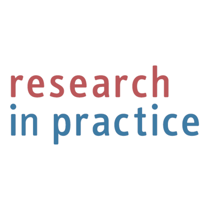How can we support autistic people to thrive? New Research in Practice resources explore the importance of building a positive understanding of autism. The resources are open access for World Autism Awareness Day and Week.
Having an informed understanding of autism is key to supporting people. In new videos, autistic author and researcher Kieran Rose from The Autistic Advocate seeks to reframe the narrative by sharing concepts of the autistic experience.
Kieran explores the importance of building an evidence-informed understanding of autism so that our work meets individual needs and promotes self-acceptance.
World Autism Awareness Day and Week highlights the need to help improve the quality of life of those with autism so they can lead full and meaningful lives as an integral part of society.
It is important that we work together to build a society in which autistic individuals are fully supported, championed and celebrated to create a brighter, more inclusive future.
These short films explore the importance of building a positive and constructive understanding of autism so that our work with autistic children, young people and their families is collaborative, meets their individual needs and promotes their self-acceptance.
Research in Practice resources explore how organisations can support neurodivergence in the workplace. The resources were released to support Neurodiversity Celebration Week.
These five short films explore how organisations can support neurodivergent practitioners to thrive and progress, and in the context of the continuing recruitment and retention crisis in social work, why it is important to do so. Examples of effective practice and challenge questions are included.
How can we support autistic people?

In a short clip below Kieran Rose foregrounds how practice with autistic people can promote their self-acceptance, agency, autonomy and thus creating the safety for them to be their authentic selves.
The clip is part of a new video learning resource that explores:
- How concepts such as monotropism help us to understand autistic experiences.
- Using a neurodiversity approach to ensure our practice and systems promote children and young people’s own capacity to be authentically themselves.
- Autistic masking and burnout.
- Using the double empathy problem to myth bust the trope that autistic people lack empathy.
- How we can change a person’s environment, rather than asking them to change themselves.
Research in Practice resources support work with autistic individuals to create a brighter, more inclusive future.

